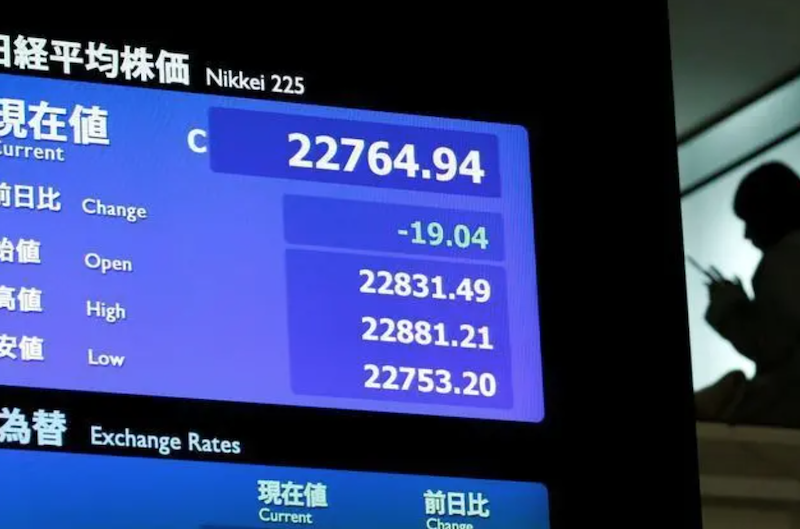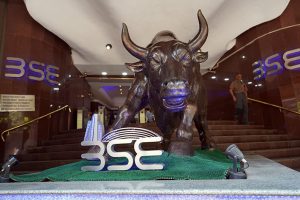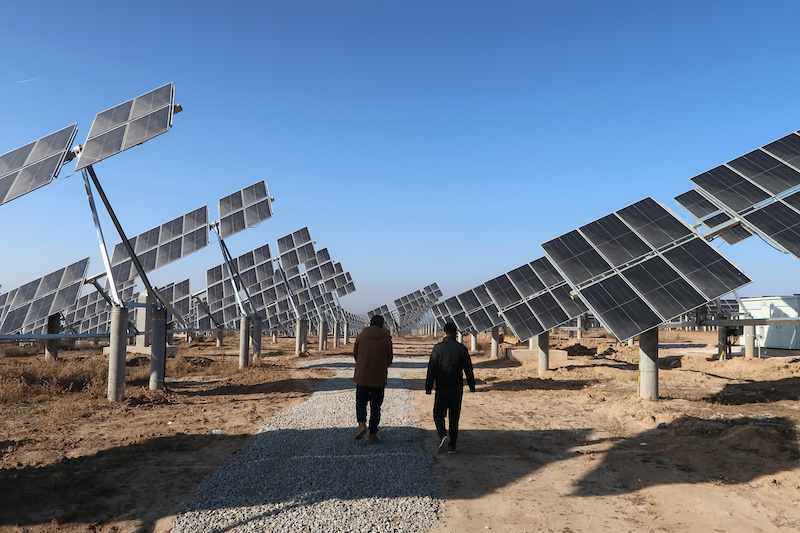Asian stocks were largely forced to take a step back on Thursday with worries over more rate hikes from the Fed resurfacing.
A surprise interest rate increase by Bank of Canada brought back fears that US rates could stay higher for longer and the Federal Reserve could remain hawkish when it meets next week.
Japan’s Nikkei fell sharply for a second straight session as investors also locked in their profits from a recent run-up in technology shares.
The Nikkei share average dropped 0.85%, or 272.47 points, to close at 31,641.27, while the broader Topix was down 0.67%, or 14.80 points, to 2,191.50.
Also on AF: Japan Energy Giants Reveal Large-Scale Battery Storage Plan
The Nikkei plunged the most in three months on Wednesday, trimming a blistering 15% surge over the past three months that has outpaced global peers.
Japan’s economy grew more than initially thought in January-March, revised data showed, fuelled by a post-pandemic pickup in corporate and consumer spending.
China stocks edged ahead with hopes of stimulus from Beijing balanced out by recent poor data about its stumbling recovery.
Bank shares were up 0.7% on the news that China’s biggest banks on Thursday said they have lowered interest rates on yuan deposits, in actions that could ease pressure on profit margins and reduce lending costs.
But data on Wednesday showed May exports in China slumped 7.5% year-on-year, the biggest decline since January and far below the 0.4% decline analysts expected.
The Shanghai Composite Index rose 0.49%, or 15.83 points, to 3,213.59, while the Shenzhen Composite Index on China’s second exchange fell 0.15%, or 2.95 points, to 1,992.33.
Hong Kong stocks fell after that surprise interest rate hike by Bank of Canada revived worries US rates could now stay higher for a longer period and on artificial intelligence stocks losing steam.
Hong Kong’s benchmark Hang Seng Index was up 0.25%, or 47.18 points, to 19,299.18 and the China Enterprises Index lost 0.02%.
Market participants will be watching closely for May’s consumer prices and factory gate prices to be released on Friday. A Reuters poll pointed to continued weak demand.
Elsewhere across the region, in earlier trade, Sydney, Seoul, Singapore, Wellington, Taipei, Manila and Mumbai were all in the red.
MSCI’s broadest index of Asia-Pacific shares outside Japan was down 0.48%.
Bank of Canada Shock Move
The downbeat mood looked set to continue in Europe, with the Eurostoxx 50 futures off 0.30%, German DAX futures losing 0.31% and FTSE futures 0.06% lower.
Canada surprised markets on Wednesday by hiking its overnight rate to a 22-year high of 4.75%, with traders expecting another increase next month to cool an overheating economy and stubbornly high inflation.
The Bank of Canada (BoC) had been on hold since January to assess the impact of previous hikes.
The move from the BoC comes after Australia also stunned markets by hiking interest rates earlier this week. The Reserve Bank of Australia later warned of more rate hikes to temper rising pricing pressures.
Markets are now pricing in a 64% chance of the Fed holding firm next week, compared with 78% just a day earlier, the CME FedWatch tool showed.
Treasury yields were stable in early Asian hours after surging overnight after the move from Canada’s central bank.
The yield on 10-year Treasury notes was up 1.1 basis points to 3.795%, while the yield on the 30-year Treasury bond was up 0.5 basis points to 3.947%.
The two-year US Treasury yield, which typically moves in step with interest rate expectations, was up 1.7 basis points at 4.567%.
In the currency market, the dollar index, which measures the US currency against six major peers, eased 0.038%, with the euro up 0.09% to $1.0707.
The yen strengthened 0.22% to 139.80 per dollar after revised data showed Japan’s economy grew more than initially thought in January-March.
US crude futures fell 0.22% to $72.37 per barrel and Brent was at $76.76, down 0.25% on the day.
Key figures
Tokyo – Nikkei 225 < DOWN 0.85% at 31,641.27 (close)
Hong Kong – Hang Seng Index > UP 0.25% at 19,299.18 (close)
Shanghai – Composite > UP 0.49% at 3,213.59 (close)
London – FTSE 100 < DOWN 0.11% at 7,615.97 (0935 GMT)
New York – Dow > UP 0.27% at 33,665.02 (Wednesday close)
- Reuters with additional editing by Sean O’Meara
Read more:
China’s Big State Banks Cut Rates on Yuan Deposits
China’s Exports Sink by 7.5% in May Amid Global Slowdown
Japan Likely To Stick With Negative Rates For a Year: Nomura























